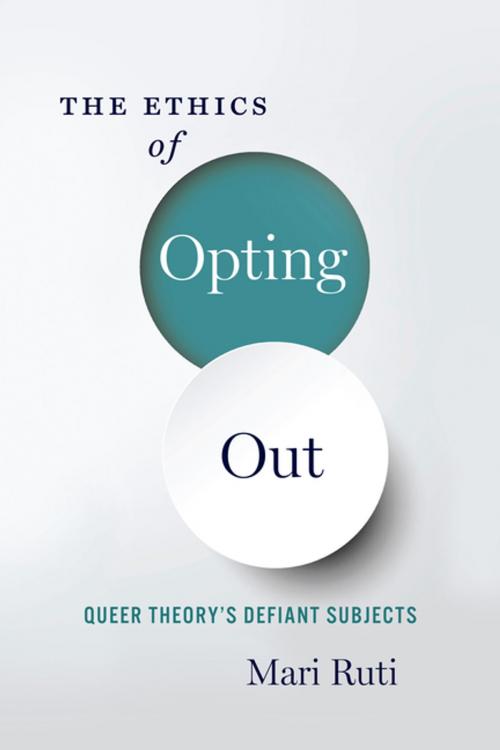The Ethics of Opting Out
Queer Theory's Defiant Subjects
Fiction & Literature, Literary Theory & Criticism, Gay & Lesbian, Nonfiction, Health & Well Being, Psychology, Psychoanalysis, Religion & Spirituality, Philosophy| Author: | Mari Ruti | ISBN: | 9780231543354 |
| Publisher: | Columbia University Press | Publication: | March 7, 2017 |
| Imprint: | Columbia University Press | Language: | English |
| Author: | Mari Ruti |
| ISBN: | 9780231543354 |
| Publisher: | Columbia University Press |
| Publication: | March 7, 2017 |
| Imprint: | Columbia University Press |
| Language: | English |
In The Ethics of Opting Out, Mari Ruti provides an accessible yet theoretically rigorous account of the ideological divisions that have animated queer theory during the last decade, paying particular attention to the field's rejection of dominant neoliberal narratives of success, cheerfulness, and self-actualization. More specifically, she focuses on queer negativity in the work of Lee Edelman, Jack Halberstam, and Lynne Huffer, and on the rhetoric of bad feelings found in the work of Sara Ahmed, Lauren Berlant, David Eng, Heather Love, and José Muñoz. Ruti highlights the ways in which queer theory's desire to opt out of normative society rewrites ethical theory and practice in genuinely innovative ways at the same time as she resists turning antinormativity into a new norm. This wide-ranging and thoughtful book maps the parameters of contemporary queer theory in order to rethink the foundational assumptions of the field.
In The Ethics of Opting Out, Mari Ruti provides an accessible yet theoretically rigorous account of the ideological divisions that have animated queer theory during the last decade, paying particular attention to the field's rejection of dominant neoliberal narratives of success, cheerfulness, and self-actualization. More specifically, she focuses on queer negativity in the work of Lee Edelman, Jack Halberstam, and Lynne Huffer, and on the rhetoric of bad feelings found in the work of Sara Ahmed, Lauren Berlant, David Eng, Heather Love, and José Muñoz. Ruti highlights the ways in which queer theory's desire to opt out of normative society rewrites ethical theory and practice in genuinely innovative ways at the same time as she resists turning antinormativity into a new norm. This wide-ranging and thoughtful book maps the parameters of contemporary queer theory in order to rethink the foundational assumptions of the field.















